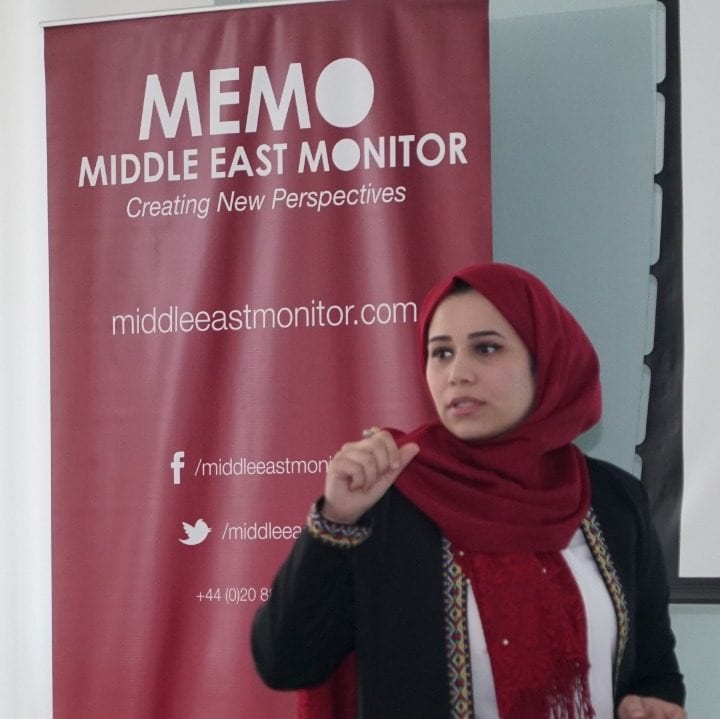The acceptance of difference and respect for all, regardless of race or creed, are fundamental Brazilian values which have enabled immigrants to enter Brazil and blend into society with relative ease. In the 19th and 20th centuries, Arab migrants came mainly from the Levant: Lebanon, Palestine and Syria. According to the International Organisation for Migration, there are 13 million people of Arab descent living in Brazil. Those across Latin America are an example of a sizeable group of immigrants who have integrated successfully into the host cultures.
This could still be costly, though, which is why the Arab Latinos project was launched in August at the Arab Brazilian Chamber headquarters in São Paulo, with the aim of strengthening ties and mapping contemporary intercultural dialogue between regions. The organisers seek to assess contemporary Arab culture in Brazil, Argentina, Mexico, Chile and Colombia.
“The Latin American Arab phenomenon is special,” explained Ambassador Osmar Chohfi, president of the Arab Brazilian Chamber. “It’s a positive example in a world where there is so much intolerance to the culture and habits of others. Latin American countries have helped the Arabs, especially the Syrians, Lebanese, and more recently Palestinians, to integrate into their local communities in an exemplary way. Today, millions of Latin Americans of Arab descent are proud of their ancestry.”
OPINION: Latin America´s Presidents speak loudly for Palestinian rights at the United Nations
The UN Educational, Scientific and Cultural Organisation, UNESCO, has contributed to the launch of the project, along with many officials, diplomats and academics from different Latin American countries. The event was attended by the Director of UNESCO and representatives from across Latin America.
The project analyses the main structures for promoting contemporary Arab culture in the five target countries, but there are already plans for expansion to look at other countries as well. “This initiative is important because it will enhance human and cultural values,” said Angela Melo, the Director of the Humanities and Social Sciences sector at UNESCO. “In the beginning, we aim to finalise the Arab Latinos action plan, but the enthusiasm of our organisers led us not only to compute the plan, but also to start operations.”
Many topics are addressed by the project in research, translation and events, as well as the education of children through online tools. The latter is a priority for the experts involved. “The goals go beyond academic knowledge as we have a diverse group, with artists, curators, business people, journalists and many who are personally connected to this initiatives,” Melo pointed out.
The Palestinian Ambassador to Brazil, Ibrahim Alzeben, was one of the guests at the launch. He stressed the important role played by Arabs and Palestinians in Latin America. “Their names are recorded in all areas of Latin American life,” he said.
According to Professor Safa Jubran of São Paulo University, the project is unprecedented. “It aims to strengthen the ties between the Arab world and Latin American countries, and map the contemporary dialogue between the cultures of these two regions,” Jubran told me. “The project will analyse the main initiatives and structures of Arab culture in the target countries.”
She believes that exchanges between cultures and knowledge of Arab countries and Latin America is currently the highest priority for Brazil. “Brazilians believe that the promotion of their cultural heritage and strengthening tolerance in their country are both very important. I hope that people shed more light on this project and Arab culture across Latin America.”
![UNESCO launches the Arab Latinos project Monday 22 September 2022 [Edson Lopes/Arab Chamber from ANBA]](https://i0.wp.com/www.middleeastmonitor.com/wp-content/uploads/2022/09/299965957_2321380984692778_7198565675321242911_n.jpg?resize=723%2C464&ssl=1)
UNESCO launches the Arab Latinos project Monday 22 September 2022 [Edson Lopes/Arab Chamber from ANBA]
A project like Arab Latinos is, therefore, an important step forward in order to build bridges between the Arab communities in Latin America and the Arab countries as there are many common characteristics, such as personality, peace and customs. If it is important for the people of Latin America to know more about Arab culture, the reverse is also true, and Arabs in the Middle East should seek to learn more about Latin America. Arab Latinos will help to do this.
READ: Calls for holding emergency Arab League meeting on Al-Aqsa Mosque
The views expressed in this article belong to the author and do not necessarily reflect the editorial policy of Middle East Monitor.

![UNESCO launches the Arab Latinos project Monday 22 September 2022 [Edson Lopes/Arab Chamber from ANBA]](https://i0.wp.com/www.middleeastmonitor.com/wp-content/uploads/2022/09/brazil.png?fit=920%2C613&ssl=1)

![UNESCO launches the Arab Latinos project Monday 22 September 2022 [Edson Lopes/Arab Chamber from ANBA] UNESCO launches the Arab Latinos project Monday 22 September 2022 [Edson Lopes/Arab Chamber from ANBA]](https://i0.wp.com/www.middleeastmonitor.com/wp-content/uploads/2022/09/300633446_2322014544629422_5787798843945528511_n.jpg?w=266&h=266&crop=1&ssl=1)
![UNESCO launches the Arab Latinos project Monday 22 September 2022 [Edson Lopes/Arab Chamber from ANBA] UNESCO launches the Arab Latinos project Monday 22 September 2022 [Edson Lopes/Arab Chamber from ANBA]](https://i0.wp.com/www.middleeastmonitor.com/wp-content/uploads/2022/09/300956331_2322014541296089_5822096629082229061_n.jpg?w=266&h=266&crop=1&ssl=1)
![UNESCO launches the Arab Latinos project Monday 22 September 2022 [Edson Lopes/Arab Chamber from ANBA] UNESCO launches the Arab Latinos project Monday 22 September 2022 [Edson Lopes/Arab Chamber from ANBA]](https://i0.wp.com/www.middleeastmonitor.com/wp-content/uploads/2022/09/301130604_2322014524629424_2651946389518180168_n.jpg?w=266&h=265&ssl=1)
![UNESCO launches the Arab Latinos project Monday 22 September 2022 [Edson Lopes/Arab Chamber from ANBA] UNESCO launches the Arab Latinos project Monday 22 September 2022 [Edson Lopes/Arab Chamber from ANBA]](https://i0.wp.com/www.middleeastmonitor.com/wp-content/uploads/2022/09/301199459_2322014537962756_5431409877875245950_n.jpg?w=646&h=805&ssl=1)
![UNESCO launches the Arab Latinos project Monday 22 September 2022 [Edson Lopes/Arab Chamber from ANBA] UNESCO launches the Arab Latinos project Monday 22 September 2022 [Edson Lopes/Arab Chamber from ANBA]](https://i0.wp.com/www.middleeastmonitor.com/wp-content/uploads/2022/09/300882205_2322014547962755_8604559972712196132_n.jpg?w=609&h=609&crop=1&ssl=1)
![UNESCO launches the Arab Latinos project Monday 22 September 2022 [Edson Lopes/Arab Chamber from ANBA] UNESCO launches the Arab Latinos project Monday 22 September 2022 [Edson Lopes/Arab Chamber from ANBA]](https://i0.wp.com/www.middleeastmonitor.com/wp-content/uploads/2022/09/301256208_2322014517962758_2996820514212229855_n.jpg?w=303&h=303&crop=1&ssl=1)
![UNESCO launches the Arab Latinos project Monday 22 September 2022 [Edson Lopes/Arab Chamber from ANBA] UNESCO launches the Arab Latinos project Monday 22 September 2022 [Edson Lopes/Arab Chamber from ANBA]](https://i0.wp.com/www.middleeastmonitor.com/wp-content/uploads/2022/09/301408282_2322014521296091_6052040388903385680_n.jpg?w=303&h=302&ssl=1)






